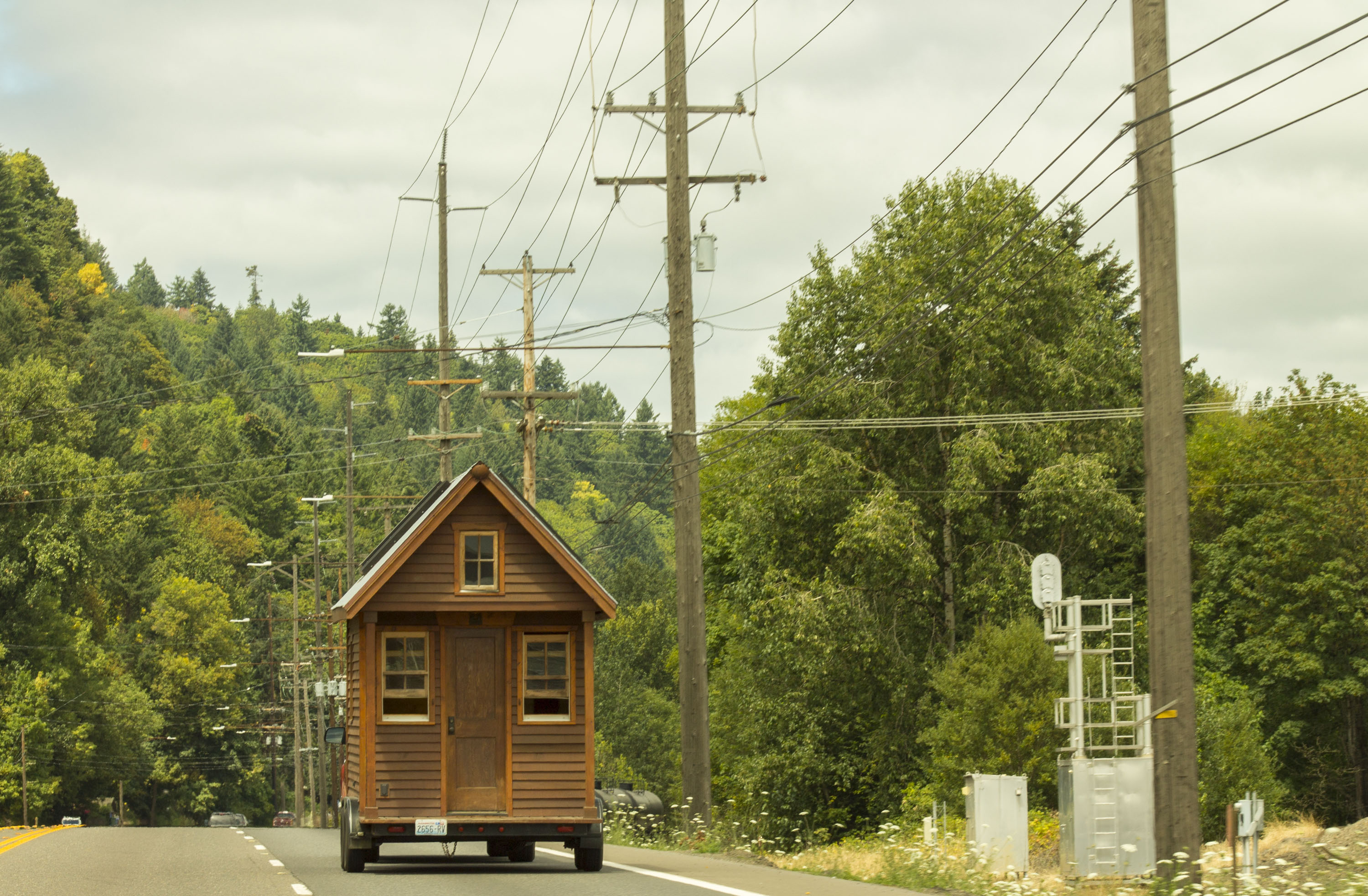By Billy Ulmer
What if tiny houses – and all small housing – were the norm? What if we stopped pretending that anybody is any happier in a big, fancy house than they are in a simple one? What if we admitted that the most important things in life are our relationships and our feelings, and actually acted that way?
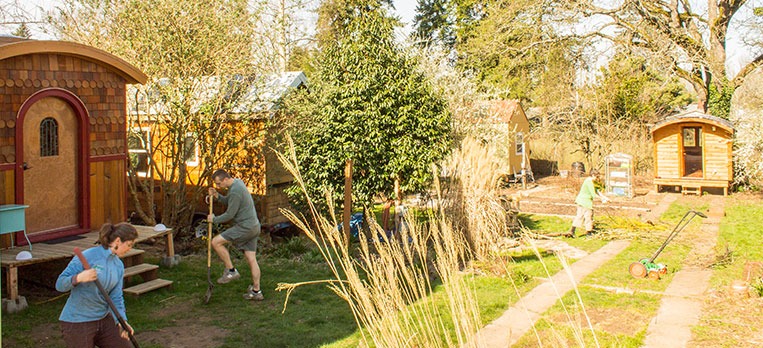
I read somewhere years ago that when Americans were surveyed about where they wanted to live, the majority wanted “a big house, on a big lot, where they could walk to shops and restaurants.” The punchline is that when you line up a series of big houses on big lots on one street, well, it’s probably too long to walk.
That’s the sort of mindset America is ripping itself apart over at the moment: Will we idealize something that’s either impossible, or involves us having it good at the expense of someone else? Or will we realize that it’s the little things that really make us happy, and that we could all have them if we figured out how to better share our resources?
At this particularly dark moment in American politics, I want to keep our focus on hope and engagement – because it’s hard to have one without the other. And I want to ask people to see housing differently, because it’s tied so deeply into our lives, our dreams, and our communities. I want to ask: What if?
What if we built small houses on small lots, all nestled into towns or cities together? What if we walked to work or dinner and actually passed our neighbors on the street in person, stopping to chat and learn one another’s names?
What if these social little neighborhoods were made of people with different incomes, ages, professions, social scenes, races, and religions? What if you were friends with the mechanic on the corner and really trusted his advice? What if you watched your Muslim and Latino neighbors bring up their kids with just as much care as you would yours, and you couldn’t fathom wanting to put them on a list or block them out with a fence?
What if you brought lunch to the little old lady two doors down, or helped the kids down the street fix their sled? What if you had the time to do all that because your home was smaller and cheaper, and because you didn’t spend so much money on so many toys or gadgets? What if you could afford to pay off your student loans or your medical bills?
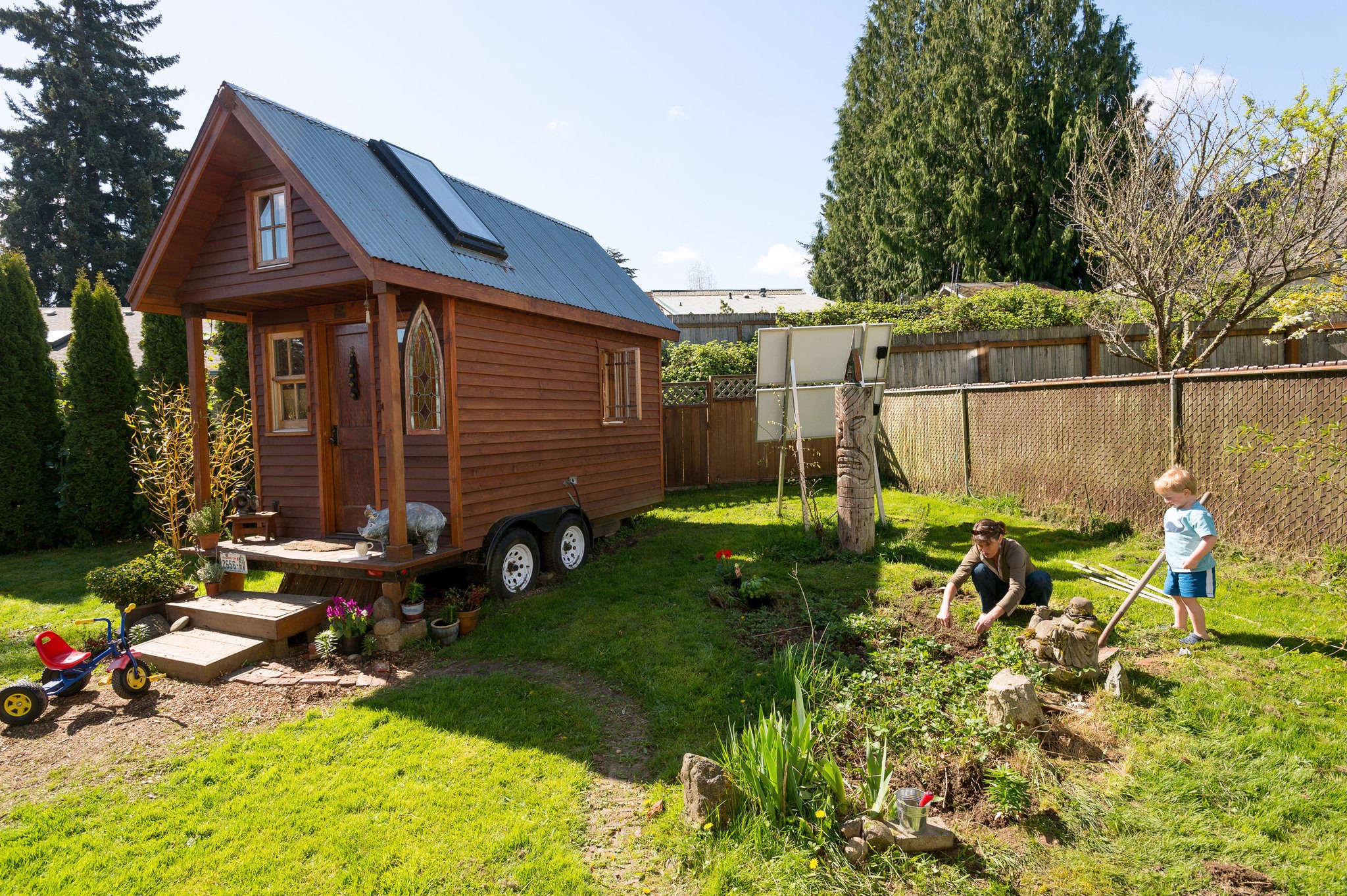
What if you could work fewer hours, or work a job you really like even if you could make more doing something else? What if you had time to walk, to think, to hike, to travel? What if you explored your state, country or the world and expanded your ideas about what’s normal, what’s desirable, and what’s possible?
What if cities could create low-cost transitional housing for people experiencing houselessness by using tiny houses, like Olympia’s Quixote Village or Portland’s hopefully burgeoning Argyle Village? What if students and professionals alike banded together to create “sleeping pods”: new, innovative little homes for people in need during the coldest, wettest months of the year?
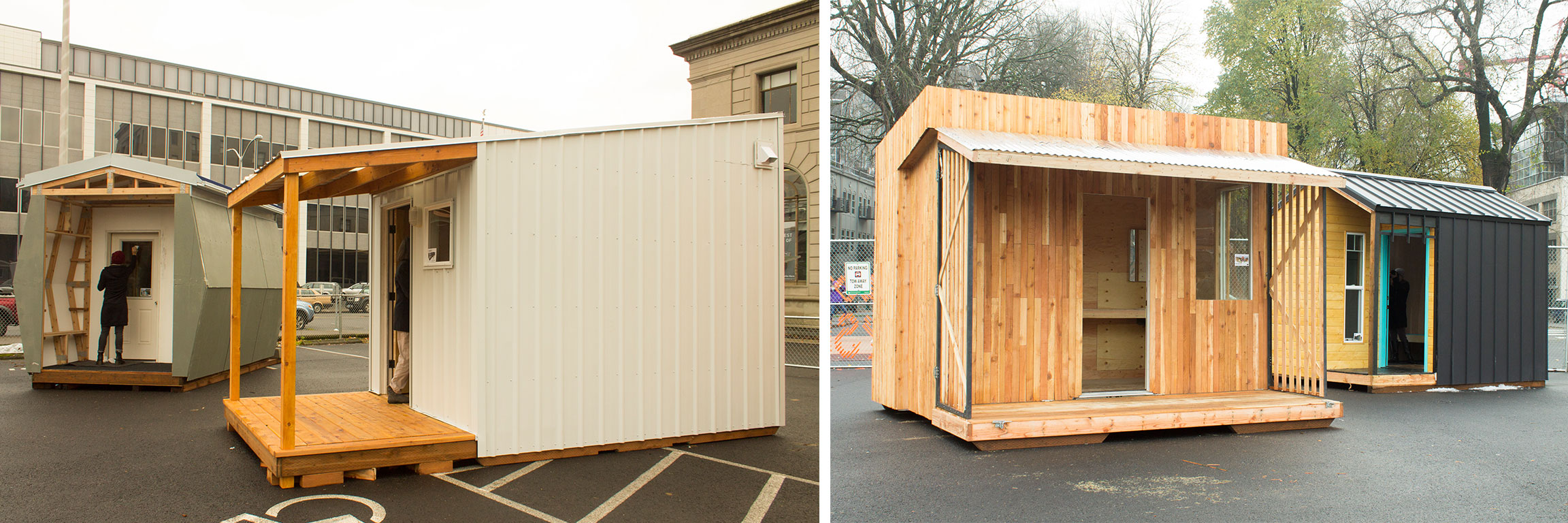
Or better yet, what if there weren’t so many people experiencing homelessness in the first place? What if rent increases were capped by an annual percentage increase, like many parts of Canada? What if the vulnerable renters in cities like San Francisco, Seattle and Portland weren’t subject to sudden rent increases of 10%, 20% or 45% percent? What if landlords and developers weren’t working so hard to “succeed” economically that they felt it necessary to evict single parents and people living on social security so they can charge the ever-increasing “market rate” for the same old apartment?
What if we created more housing in these popular cities, and made it easier for more people to live there together? What if every house had an ADU or “backyard cottage” on its lot? What if even 35% percent of homes did, as they do in Vancouver, BC? What if it was legal to let a tiny house on wheels park in your backyard? What if families sharing a yard could take turns keeping an eye on their children? What if exhausted parents had more help and kids could go out and play with friends without getting dropped off in the car?
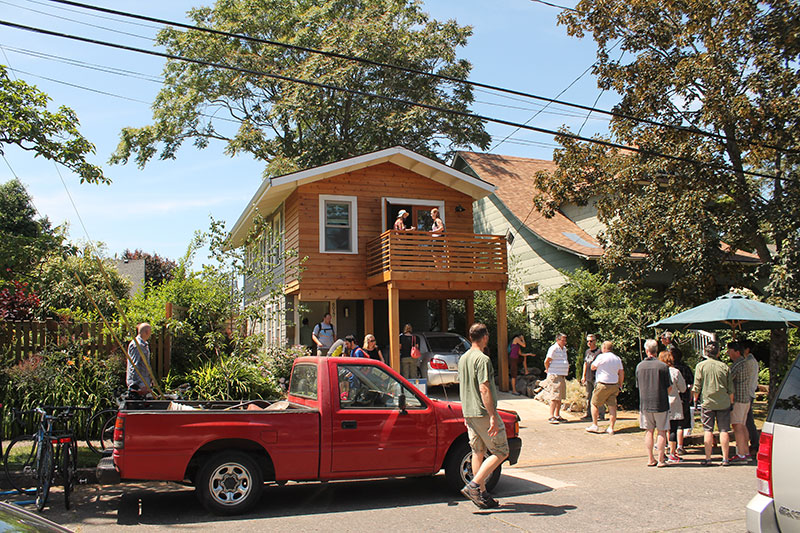
What if we all thought of a little house on a little lot and saw all the advantages, instead of the fears and compromises? What if we thought of the smaller bills and smaller mortgages, the baby-sitters and cat-sitters, the walks to the coffee shop, the time to stop and chat or smell the flowers? What if we really believed that all that was worth more to us than the big house on the big lot?
What if we talked about it with anyone who would listen? What if the people building and living in all the biggest houses started listening?
It’s our responsibility to keep dreaming and fighting for a better world. All the time, and especially at this time. We have to challenge ourselves and each other to focus on what’s important and speak up for what’s right. We have to keep envisioning solutions and improvements that propel us forward and drag us out of the doldrums. We have to ask, what if? We won’t get anywhere new without it.
